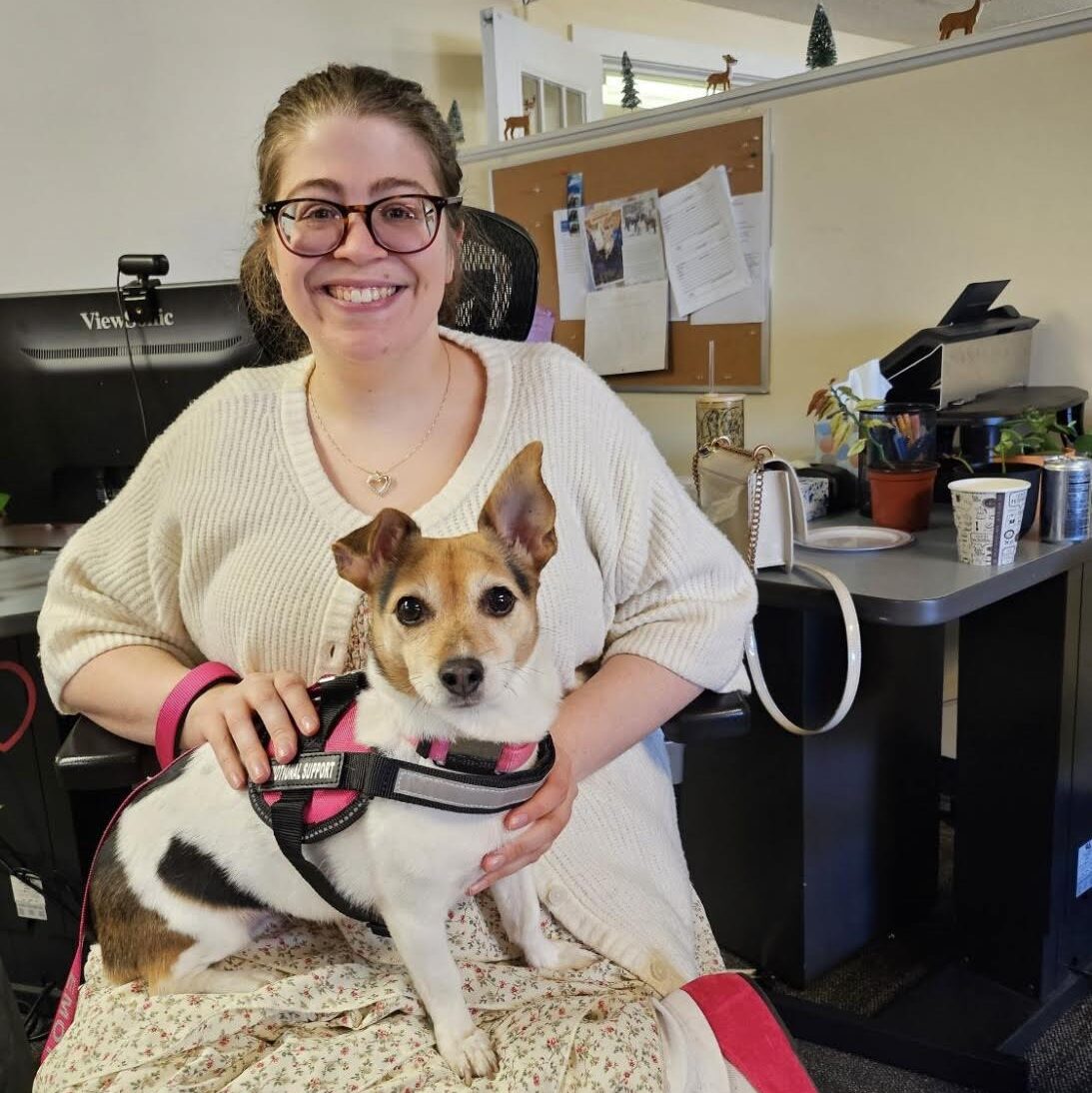
I truly am doing the best I can and so are all the people I know and do not know. We need the playing field leveled in order to contribute, and we do want to contribute.
Valerie MacIver works at the Disability Resource Center in Salem, Massachusetts. Living with a disability since early childhood, she has faced lifelong challenges. As she grew older, even with the support from her parents and teachers, she believes she lacked the education to understand what her disability would mean long term.
At 18, Valerie began receiving government benefits, but she didn’t understand what they were. She had no awareness of Medicare or MassHealth, the Massachusetts version of Medicaid. “I didn’t think I needed to,” she said. She assumed her life would move forward in a linear way, guided by the belief in “progress, not perfection.” But reality didn’t follow a neat trajectory. “That just hasn’t been my experience,” she explained. “Disabilities are dynamic.”
When she began to understand how essential MassHealth, Medicare and SNAP benefits were to her survival, she also realized how little she had been taught about them. While education around these programs might have helped her prepare, she remains grateful they exist at all. That gratitude is why she now fears the implications of the recently passed Republican health care cuts.
Valerie knows caregivers and friends who depend on medications that may no longer be covered. “I know that in addition to impacting me, it is going to impact many of my peers and their families,” she said. She also expressed concerns about work reporting requirements, though some of her family members have told her she won’t be affected because she was able to go to school and is able to work.
But Valerie’s reality is not so clear cut. Given the fluctuating nature of her disability, she took a reduced courseload for college, which was an accommodation that would not have been possible without her parents. ‘Having a family who had the finances to make it possible for me to spread out my educational journey was a privilege not many people experience.” But even with a bachelor’s degree in psychology under her belt, Valerie shared that her disability can have a significant impact on her ability to work full-time. She struggles to cover rent even with her disability check. “As a disabled woman, I need SNAP, Medicare, and MassHealth to bridge the gap between what I can do for work and the rising cost of living,” she shared.
She pushed back on the myth that working disqualifies someone from needing disability support. “You can have the ability to contribute to society at some points, and other times my disability prevents me from doing that,” she said. “That doesn’t make me any less valuable of a person.”
Valerie also lives with celiac disease, which increases the cost of food, making her immensely worried about the loss of her SNAP benefits. “That is one of the ways that I’m able to stay living independently,” she said, even though between SNAP and her disability check, she can still barely afford rent. “It’s not necessarily a long-term sustainable thing, but it’s what I can do now with the resources I do have…I’m just grateful for what I do have and unsure of when that will suddenly disappear,” she said.
As someone who works in disability services, Valerie sees her own fear reflected in her community. “Everybody is walking around with their own health care experience, their own story, their own problems, and not knowing how their specific situation is going to be handled under this new law is terrifying,” she said.
Valerie also acknowledged how easy it is to overlook who around us relies on public benefits. “I have people in my life that I never had any idea needed SNAP. I have people in my life that I had no idea needed Medicaid,” she said. Working at the Disability Resource Center opened her eyes. “I could easily be in the same situation as them.”
She continues to confront her own biases and past assumptions. “I’m learning to challenge those beliefs I had before,” she said. “It is tempting… to stick your head in the sand and say, well, I’ve done all I can do,” she said. But Valerie refuses to disengage. “There’s still time to argue. There’s still time to advocate. There’s still time to share.”
She believes too many people assume individuals with disabilities are abusing the system. “Ableism is multifaceted,” she said. “It can look like so many different things. One thing I’m concerned about is people believing that we genuinely don’t need the services that we require in order to live at all, let alone have a decent quality of life.”
Valerie sees trust as the foundation of these systems. “There is a level of trust required in people in general to provide things like Medicaid and SNAP,” she said. “I truly am doing the best I can and so are all the people I know and do not know. We need the playing field leveled in order to contribute, and we do want to contribute.”
She knows the path forward won’t be easy, but her voice matters. So do the voices of those who can’t speak up. “It’s always so much easier to look away,” she said. “But so much more effective and impactful and empowering to just participate in the way that I can.”
Add your voice to help us continue to push for the best health and health care for all.
SHARE YOUR STORY